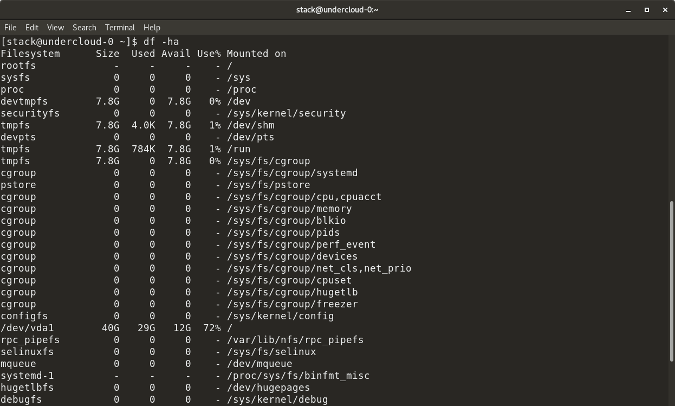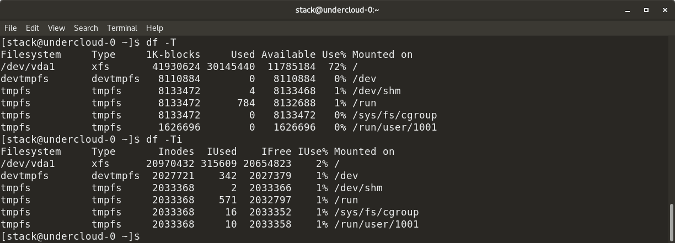2.6 KiB
How to check free disk space in Linux
Keeping track of disk utilization information is on system administrators' (and others') daily to-do list. Linux has a few built-in utilities that help provide that information.
df
The df command stands for "disk-free," and shows available and used disk space on the Linux system.
df -h shows disk space in human-readable format
df -a shows the file system's complete disk usage even if the Available field is 0

df -T shows the disk usage along with each block's filesystem type (e.g., xfs, ext2, ext3, btrfs, etc.)
df -i shows used and free inodes

du
du shows the disk usage of files, folders, etc. in the default kilobyte size
du -h shows disk usage in human-readable format for all directories and subdirectories
du -a shows disk usage for all files
du -s provides total disk space used by a particular file or directory

The following commands will check your total space and your utilized space.
ls -al
ls -al lists the entire contents, along with their size, of a particular directory

stat
stat <file/directory> displays the size and other stats of a file/directory or a filesystem.

fdisk -l
fdisk -l shows disk size along with disk partitioning information

These are most of the built-in utilities for checking file space in Linux. There are many similar tools, like Disks (GUI), Ncdu, etc., that also show disk space utilization. Do you have a favorite tool that's not on this list? Please share in the comments.
via: https://opensource.com/article/18/7/how-check-free-disk-space-linux
作者:Archit Modi 选题:lujun9972 译者:译者ID 校对:校对者ID
